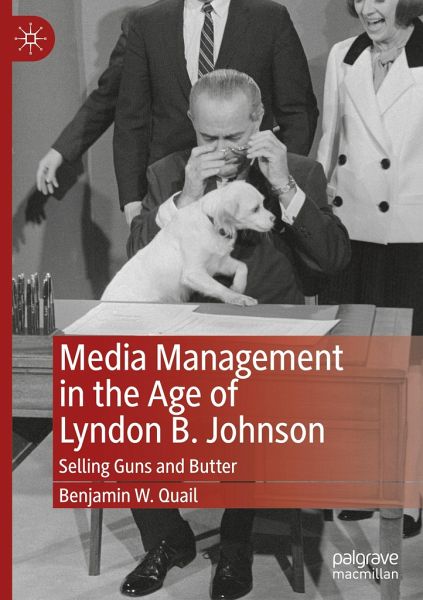
Media Management in the Age of Lyndon B. Johnson
Selling Guns and Butter
Versandkostenfrei!
Versandfertig in 6-10 Tagen
91,99 €
inkl. MwSt.
Weitere Ausgaben:

PAYBACK Punkte
46 °P sammeln!
This book looks broadly at how the contentious relationships between the media and US President Lyndon B. Johnson affected the national consciousness during the turbulent period of his leadership. Johnson had to deal with a particularly difficult and divisive period in American history and his relationship with the press undoubtedly contributed to an atmosphere of friction within the United States. A more specific purpose of this research monograph is ultimately to shine a light on the trials and tribulations that Johnson faced as a president dealing with new forms of communication in the 1960...
This book looks broadly at how the contentious relationships between the media and US President Lyndon B. Johnson affected the national consciousness during the turbulent period of his leadership. Johnson had to deal with a particularly difficult and divisive period in American history and his relationship with the press undoubtedly contributed to an atmosphere of friction within the United States. A more specific purpose of this research monograph is ultimately to shine a light on the trials and tribulations that Johnson faced as a president dealing with new forms of communication in the 1960s. It aims to show the difficulties that he had in adapting a very personal style of leadership - which had served him well in the Senate - in the role he undertook as leader of a nation. Further to this, it builds on this foundation to argue that Johnson developed a reactive, passive stance to dealing with the media, one that ultimately contributed to a loss in popularity and status as leader - ablow he never recovered from during his time in office.












